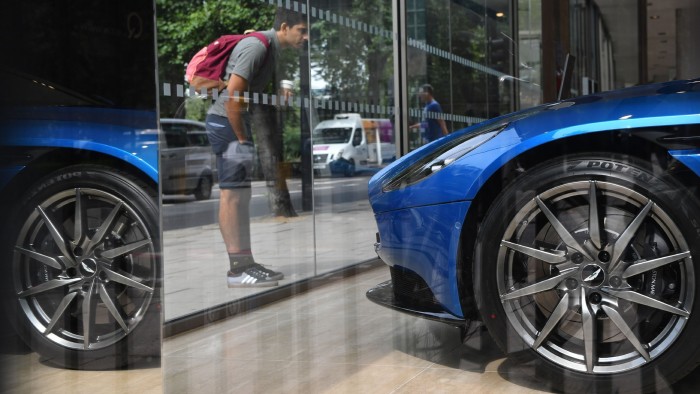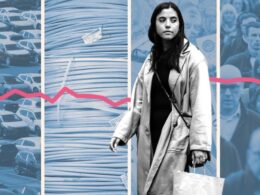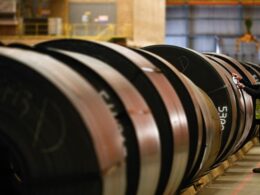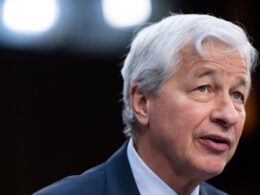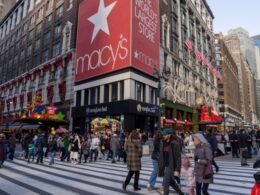Unlock the Editor’s Digest for free
Roula Khalaf, Editor of the FT, selects her favourite stories in this weekly newsletter.
The cost of insuring against debt defaults in Europe’s car industry has soared, as investors ditch bonds in the sector in response to US President Donald Trump’s tariffs.
The auto sector’s slump in response to punitive tariffs, which includes a 25 per cent levy on vehicle imports, means that it now stands out as Europe’s biggest debt market casualty.
“It’s been a continuation of the bloodbath of last week . . . it is going to hurt the vast majority of carmakers,” said Gianmarco Migliavacca, a senior credit analyst at Neuberger Berman.
The prices of Aston Martin’s bonds issued last year fell to all-time lows on Friday and continued to drop on Monday, with one bond tumbling more than 9 per cent since Friday to as low as 82 pence on the pound.
In the credit default swaps market, the cost of insuring against Volkswagen defaulting on its bonds in the next five years climbed by 30 basis points to 154bp — the highest level since the Covid-19 pandemic — between Friday and Monday.
Despite VW being one of the sector’s stronger performers, investors had increased their bets that the German carmaker would struggle to service its debt. The price of VW’s five-year credit default swap recovered slightly on Tuesday, falling by almost 5bp.
The lossmaking Aston Martin is exposed to Trump’s tariffs because it does not manufacture its vehicles in the US, but the market accounts for 37 per cent of its annual revenue.
It is expected to take a hit of as much as a £30mn to its gross profit as a result of the US tariffs, people close to the company said.
Suffering from a sales slowdown in Asia, the company had expected to be aided by growth in the US. Those hopes have been damped by an increasingly gloomy economic outlook in the US.
Aston Martin is one of the sector’s more challenged names and at present operates with £1.16bn of debt at double-digit interest rates, with investors demanding hefty compensation to hold its bonds.
The group recently announced plans to raise more than £125mn with the sale of its minority stake in the Formula 1 racing team and additional investment from its chair Lawrence Stroll.
VW, meanwhile, has said it wants to use US sales growth to offset sliding sales in China and Europe, although it only has a 4 per cent market share in the US.
The German group is exposed to the US tariffs on the EU because it imports a part of its US sales from Europe, while its luxury Audi and Porsche brands are all made outside the US. China’s slowdown has also hit VW.
“China’s market has become increasingly difficult and less profitable for carmakers,” said Migliavacca. “North America was to offset this . . . now North America is much less profitable.”
Credit spreads for car suppliers elsewhere in the auto supply chain, including France’s Forvia and Germany’s ZF Friedrichshafen, also widened as tariff fears continued to fuel a sell-off throughout Europe’s auto supply chain.
Analysts have said the auto parts suppliers are likely to be hit harder by the tariffs due to their lower margins especially after US officials revealed last week that a wider than expected range of car components would be subject to the 25 per cent tariff from May 3.

Forvia, which supplies parts to Stellantis, Tesla and China’s BYD, said last month that it expected the industry to take an “enormous” hit from Trump’s tariffs.
The price of Stellantis’s five-year credit default swaps has jumped by 40bp since the beginning of April, from 170bp to about 210bp.
“Putting 25 per cent on significant flows of purchases for the sum of the industry automatically has a very significant impact,” said Forvia’s chief financial officer Olivier Durand.
At the weekend, Jaguar Land Rover announced that it had suspended all shipments of cars to the US for a month, as it works out a longer term response to Trump’s tariffs on vehicle imports.
Source link





